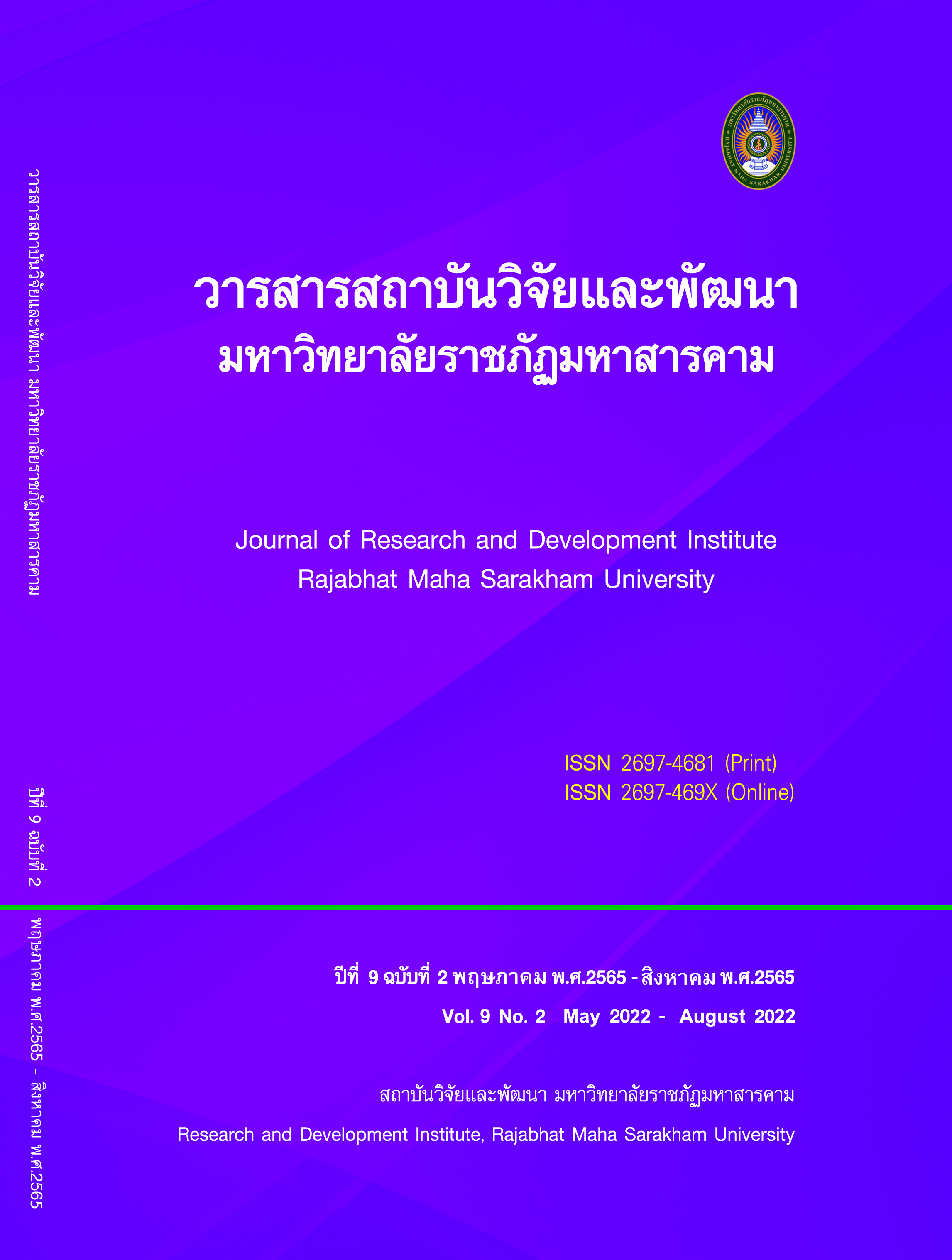The development of science process skill by problem base learning for Mathayom Suksa 5
Keywords:
Problem Based Learning, scientific process skillsAbstract
The objectives of this research were 1) to develop scientific process skills of Mathayom Suksa 5 students by using problem based learning management methods for not less than 70% of students to pass the criteria of 70% or more; 2) to develop scientific process skills of Mathayomsuksa 5 students with a problem based learning management method with a score of not less than 70%. The target group used in this research were 10 number of Mathayomsuksa 5 students at Nonarasriwittaya School. There are 3 types of research instruments used in research operations, A tool to research operations was problem based learning management plans. A tool to reflect the results of the research was an interview form with learners. The tool used to assess the effectiveness of learning management was the Scientific Process Skills Scale. To analyze the data from the data collection, the researcher used baseline statistics, mean, percentage and standard deviation.
References
Chaphithak, R. & Chaipichit, D. (2021). The Development of Grade 3 Students’ Scientific Process Skill and Learning Achievement through Problem-Based Learning Activities. Journal of Roi Kaensarn Academi. Vol. 6 No. 6 June 2021.
Dahsah, C. & Seetee N. (2017). Enhancement of science process skills for early childhood children through cyclical learning management. Journal of Education Naresuan University. Vol. 19 No. 3 (2017)
Ministry of Education. (2008). Basic Education Core Curriculum 2008. Bangkok: Agricultural cooperatives in Thailand.
Phokapanich, W. (2016). Development of scientific process skills on force, motion and energy Science learning subject group Mathayom 3 by providing problem-based learning management. Sakon Nakhon : Sakon Nakhon Rajabhat University.
Phumi, W. (2012). The effect of problem-based learning management on ratios and percentages towards the ability to solve mathematical problems and the ability to reason in math of Grade 2 students. Bangkok: Srinakharinwirot University.
Downloads
Published
How to Cite
Issue
Section
License
Copyright (c) 2022 Journal of Research and Development Institute Rajabhat Maha Sarakham University

This work is licensed under a Creative Commons Attribution-NonCommercial-NoDerivatives 4.0 International License.
Articles that are published are copyrighted by the authors of the articles







